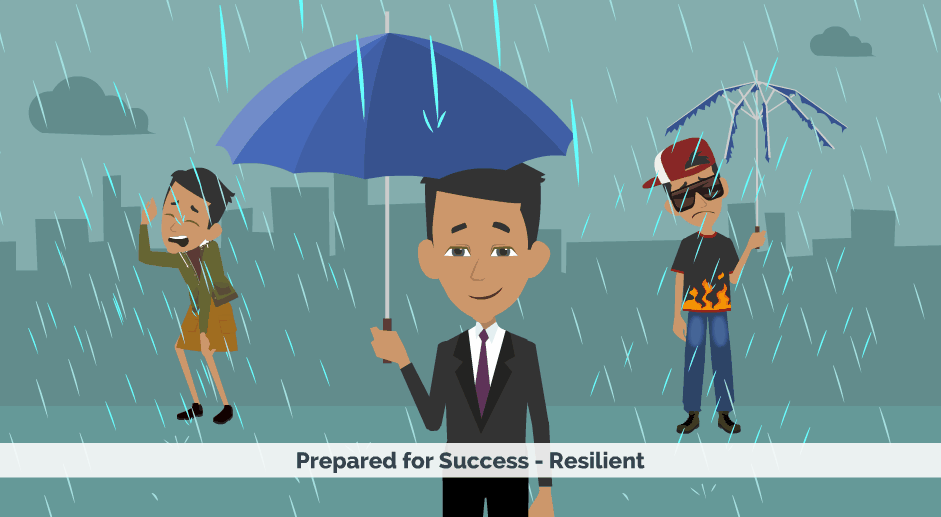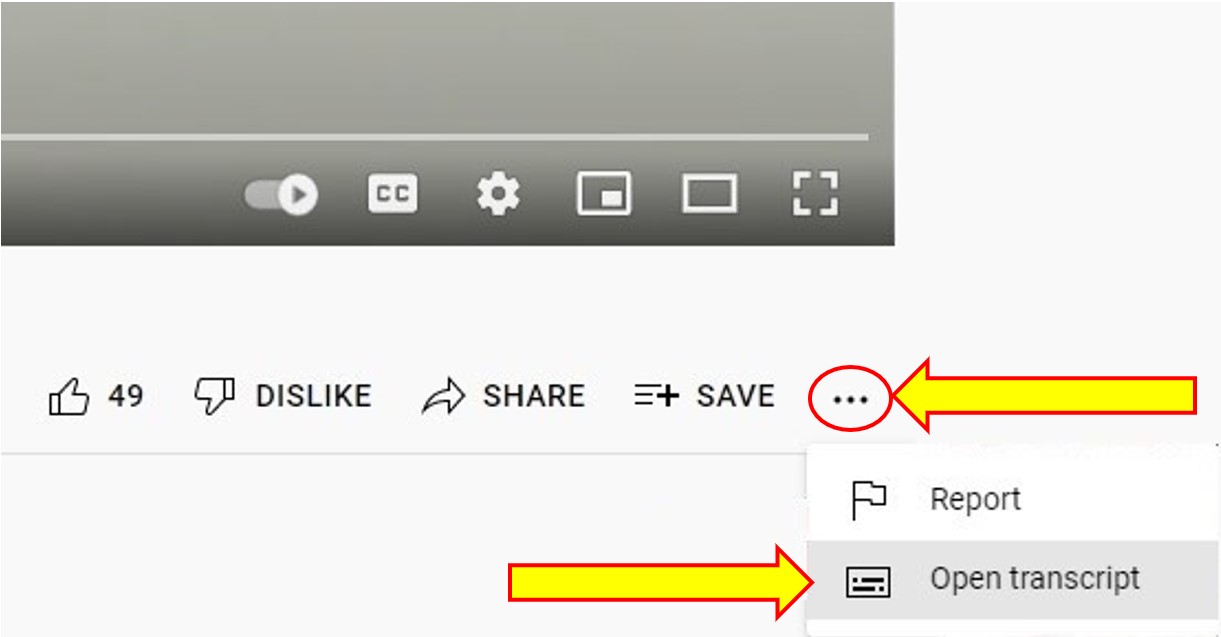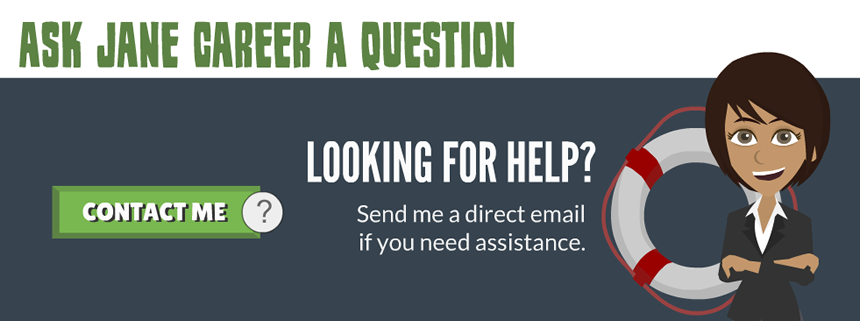Module 04: On the Job Success
4.12 Resilience and Success

When facing a difficult task, are you usually able to accomplish your goal or are you more likely to give up? We all face challenges, stress, and change in our lives and in our careers. Building our resilience can help us to recover and adapt, ultimately allowing us to persist and grow.
“Resilience involves being able to recover from difficulties or change—to function as well as before and then move forward. Many refer to this as “bouncing back” from difficulties or challenges.
“People who are resilient can effectively cope with, or adapt to, stress and challenging life situations. They learn from the experience of being able to effectively manage in one situation, making them better able to cope with stresses and challenges in future situations. In other words, dealing with challenges can make us grow and can make us stronger. Rather than merely bouncing back, we’re better prepared than we were before to face challenges that lie ahead.”
(Understanding Resilience: Centre for Addiction and Mental Health)
© Copyright 2012 Centre for Addiction and Mental Health
Your resilience and your belief in your capacity to deal with various adverse situations can play a significant role in your career success.
Reflection Questions and Video
- What factors do you think contribute to career success?
- Watch the video below and reflect on your formula.
- Would you change or add anything to it?
The Happiness Advantage: Linking Positive Brains to Performance
Transcript
To Access the Video Transcript:
1. Click on “YouTube” on the bottom-right of the video. This will take you directly to the YouTube video.
2. Click on the More Actions icon (represented by three horizontal dots)
3. Click on “Open Transcript”

So, how would you build resilience?
The table below outlines the factors that contribute to career resilience. You can build your resilience by developing the positive factors (in the right hand column) and reducing negative factors (the middle column). For example, if you approach your goals in a flexible way, changing your path as you learn more about yourself and the world of work, you’re more likely to be resilient in the face of unexpected stresses and challenges than if you have very fixed career goals.
Think about each factor and whether you tend to land more on the positive or negative end of the spectrum.
Mouse over the terms below and/or select the “+” button below the table to view the definitions.
Table 4.2 Summary
| Factor | Negative | Positive |
|---|---|---|
| Future Focus | Hopeless | Hopeful |
| Expectations | Naive | Realistic |
| Responsiveness | Blaming | Reflecting |
| Goals | Fixed | Flexible |
| Readiness | Unprepared | Strategic |
| Social Position | Isolated | Supported |
Source: Thomas Staunton: Exploring Building Resilience in a Careers Context
Source: Blog of Tom Staunton https://runninginaforest.wordpress.com/2015/01/26/exploring-building-resilience-in-a-careers-context/
In reflecting on your future career goals, write down what the following factors mean to you. What actions can you take to increase your resilience?
Below is how Jane filled out the table:
| Factor | What it Means for me? | Action |
|---|---|---|
| Hopeful future focus | I would like to be an office manager one day | I will start picturing myself in this role and talking to my network about my career aspirations |
| Realistic expectations | It might take me a few years to accomplish that | Info interviews, find a mentor to learn what I need to do to get closer to this goal |
| Reflecting attitude | What can I do to increase my chances, what I have already done? | Write some success stories to reflect on my accomplishments |
| Flexible goals | I might decide to do something else later or even change my career. Be open to new ideas, Jane! | Do research into other areas of interest such as fashion (always been favourite of mine!) |
| Being strategic | To plan in advance to prepare for the future | Think about possible professional development courses to take |
| Have social support | My network, people who can support me in my career | Attend administrative professionals conference |

CAREER RESILIENCY TIPS
|
|
Start a new job with curiosity, observe how the business operates. Ask questions during the onboarding period. Curiosity also means showing genuine care for your co-workers. Spend time in conversation to get to know team members better. |
|
|
Being flexible can help you adapt to a new workplace culture and work in a diverse environment. Go with the flow. Are you an employee with flexible attitudes who can take on new challenges with short notice? |
|
|
Show up at work with a positive attitude. Being optimistic at work will help contribute to your career success. |
|
|
Starting a new job also involves a steep learning curve. Keep learning and trying, find mentors, with persistence you can master the skills required. |
|
|
It takes courage to join a workplace, especially one in an unfamiliar country, and to meet new colleagues and clients. The uncertainty during your probation period can cause anxiety. Embrace the uncertainty. |
For in-person assistance, feel free to make an appointment with an Employment Advisor in the Career Services & Co-operative Education department (careerservices@centennialcollege.ca).
It can be exciting to start a new job but it can sometimes be stressful with everything there is to remember. Remind yourself that it will get more comfortable as you get used to your new environment and responsibilities. By going through the content in this module, you are now better prepared for success in your new career!

How you look at the future
Expect things to go badly in the future.
Expect that things will go well in the future.
How accurate your expectations of the future are.
A view based on here-say and assumptions. Usually leads to being surprised and confused about your future career.
An objective and well-researched view of your future career that is more understandable and predictable.
How we respond to failure.
Failure is seen as threatening and your response is to protect your ego by blaming the failure on external factors, such as people, things or circumstances. This doesn’t allow you to learn from your experience and move forward.
Failure is seen as an opportunity to learn and your response is to reflect on the past to gain insights that can be used to adjust your beliefs, attitudes and actions for the future.
Focus or destination of your career.
An unwillingness to change and adapt goals when you or the world of work changes.
A willingness to change and adapt your goals in the face of new realities.
Having what is needed to move your career forward.
Going through a career without a plan and simply reacting to circumstances as they come up.
Going through a career with a long-term plan while being adaptable and flexible.
The extent to which we look for support from other people.
Isolate yourself and aim to act individually.
Look for support from others, which can give you encouragement, feedback, direction and access to opportunities.







